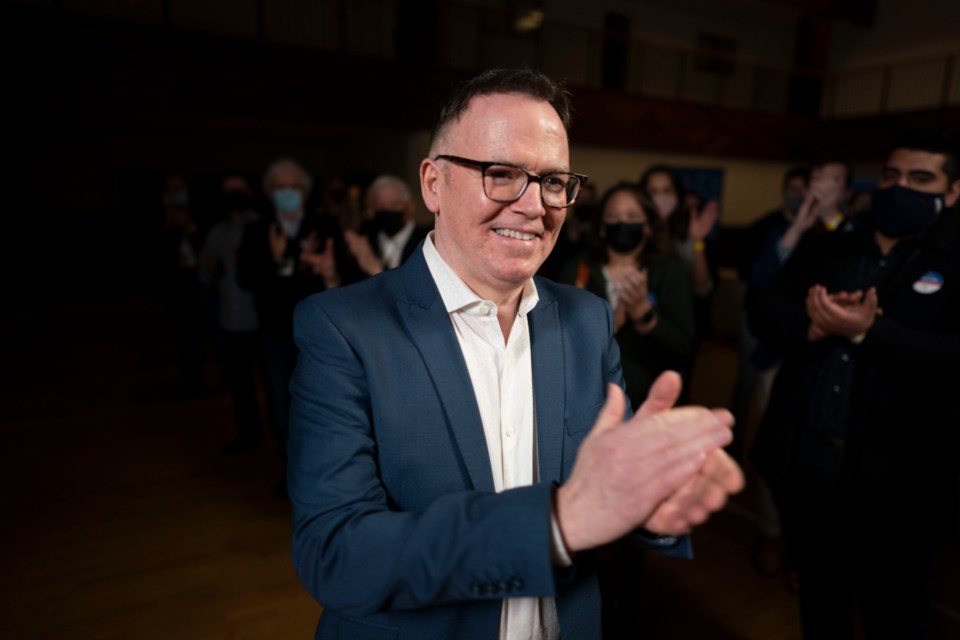B.C.’s official opposition is locking in plans to fix housing affordability, but a trio of researchers is expressing doubts.
“There’s really not anything more [BC United] can do on the supply side than what the NDP is doing,” said Tsur Somerville, an associate professor specializing in real estate at the University of British Columbia's Sauder School of Business. Somerville has contributed to a December 2023 study that was prepared for the Ministry of Housing under the NDP government.
“The NDP is being very aggressive on the supply side of stuff, which would be the natural place for a right-of-centre party to do something.”
BC United unveiled the plan last week, with promises to launch a rent-to-own program, eliminate the property transfer tax for first-time buyers on properties valued up to $1 million, utilize publicly owned land to build affordable housing and eliminate the PST on residential construction.
“When it comes to housing, the NDP insists on a big government approach, an approach that hasn't worked for the past seven years and two elections. To increase supply, we need to tackle the taxes and fees that add massive costs to homebuyers, which BC United has committed to do,” party Leader Kevin Falcon said in a statement to Glacier Media.
“The critical steps to add supply to the housing market that are identified in BC United’s platform include PST relief on construction costs and 99-year leases on public land for $1 a year. These are huge steps for adding supply as PST accumulates on the cost of materials while a home is built.”
British Columbians will be casting their votes in the provincial election this fall.
Not only did last week see a new housing plan from the official opposition, but also the release of the provincial government’s long-awaited, multibillion-dollar BC Builds initiative that aims to create rental housing on government-owned land.
Thomas Davidoff, associate professor at the UBC Centre for Urban Economics and Real Estate, describes the plan as “small ball.” Davidoff also contributed the same study as Somerville.
He said that the rent-to-own program and elimination of the property transfer tax are geared towards individuals who are “almost at the finish line into homeownership.”
“But what about people who are never going to get to the finish line, like homeless people or low-income households who, down payment or not, aren't going to be able to make mortgage payments? I would think those are the people in the most need. So, it's a little weird to focus so much assistance on the middle or upper middle of the income distribution,” Davidoff said.
In response, Falcon said that this will aid individuals who don’t have access to the “bank of mom and dad.”
“When rent costs thousands per month, there's simply no way for folks to save. Rent-to-own solves that problem by getting people into homeownership while helping build more housing by securing early financing for more homes,” he said.
Experts who spoke to Glacier Media said that rent-to-own programs are not a bad thing, but that the one presented in the BC United plan is unnecessarily complex and that it will come at a cost to the provincial government.
“Rent-to-own means that the government needs to subsidize the owners of the property in order to make that actually work financially,” said Somerville, who said there's a space where rent-to-own “can be a benefit.”
BC United said in its announcement last week that government financing would cover carrying costs to ensure homebuilders stay whole financially during the rent-to-own period.
“The rates government can secure will be lower than construction financing and be minimal compared to the outright cost of the NDP's big-government approach,” said Falcon.
The official opposition cited a project in Port Moody that had 10 per cent of a 358-unit project designated as rent-to-own and described this as a “successful example.”
Meanwhile, Falcon said eliminating PST on residential construction would save over $2 million on the cost of a 350-unit apartment tower and over $150,000 for a six-storey wood-frame condo in Vancouver.
Andy Yan, director of Simon Fraser University's City Program, said there may not be a lot of opportunity to build affordable housing on publicly owned land, as per BC United’s plans.
“When you look at public land that is appropriate for housing, you probably don't actually have a lot. You can imagine that you don't necessarily want conflicting uses, say with a hospital,” he said, adding that this part of the plan resembles what was unveiled in the province’s BC Builds initiative.
“I'm trying to think about what's the big innovation here. And how much of this is innovation versus repetition?”
Somerville said BC United was “slow to the table.”
“What's left over to do is both small and cost money,” he said. “The thing about pushing the supply side is it doesn't cost the government money. Except where you're doing the supply of low-income housing and that's always been a government space.”
Falcon said that the public can expect more “bold and innovative ideas” in the fall.
Editor's note: This story has been updated to reflect that Somerville and Davidoff have contributed to work for the Ministry of Housing under the NDP government.




